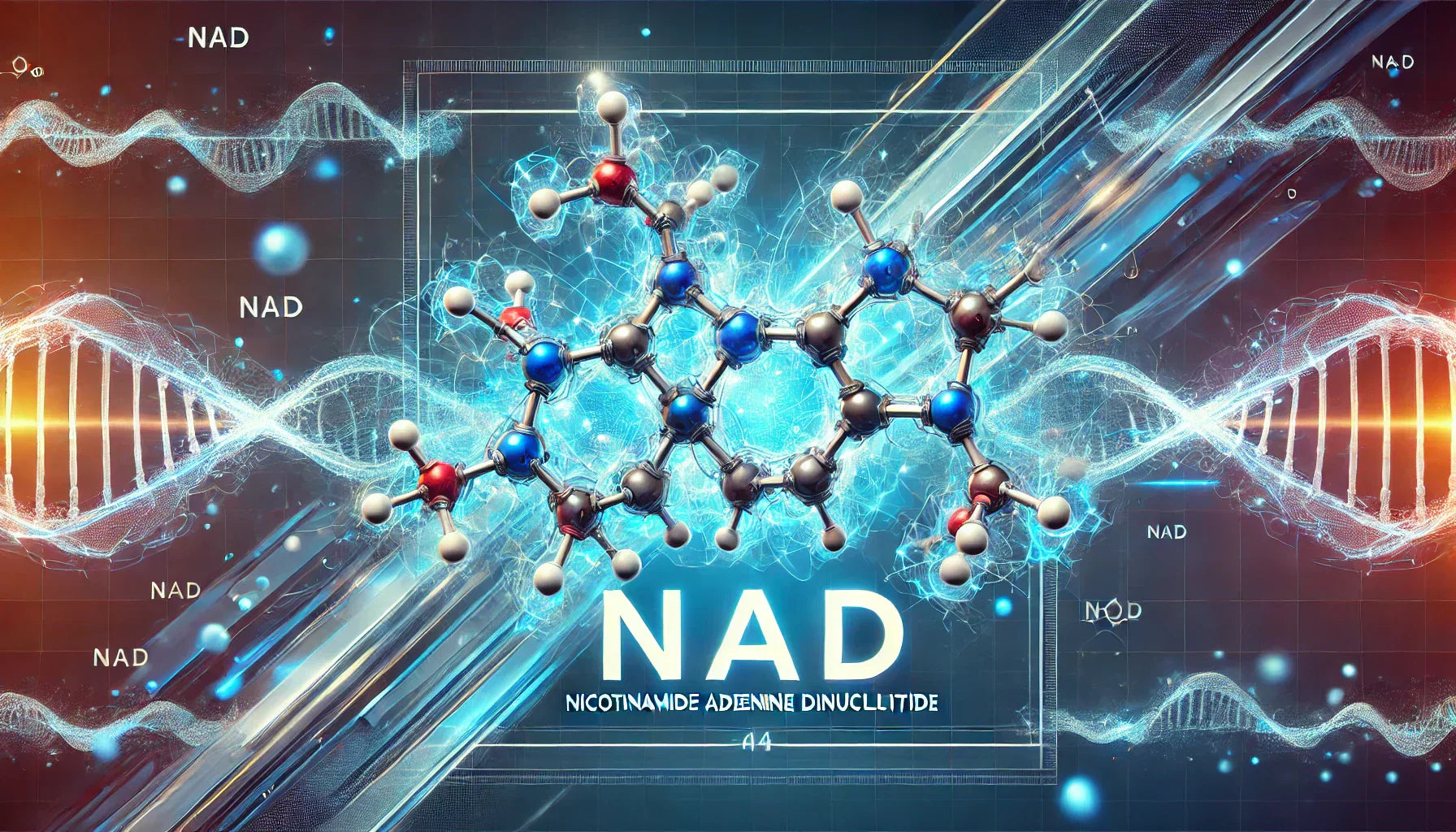What is NAD?
Nicotinamide adenine dinucleotide (NAD) is a vital coenzyme found in every cell of the body. It plays a crucial role in energy production, cellular repair, and overall metabolic function.
What Does NAD Do for the Body?
1. Energy Production – NAD is a key player in the process of converting food into energy via cellular respiration in the mitochondria.
2. DNA Repair – Helps maintain the integrity of genetic material by supporting enzymes like sirtuins and PARPs, which repair damaged DNA.
3. Brain Function – Supports cognitive health by enhancing neuronal function and protecting against neurodegenerative diseases.
4. Metabolism Regulation – Assists in maintaining healthy metabolism, reducing the risk of obesity and metabolic disorders.
5. Anti-Aging Benefits – Supports sirtuins (proteins linked to longevity), reducing cellular aging and improving overall cellular function.
6. Muscle and Cardiovascular Health – Helps in muscle recovery and supports heart health by improving circulation and mitochondrial efficiency.
7. Immune System Support – Enhances immune response and helps combat inflammation.
Why is Taking NAD Beneficial?
As we age, NAD levels decline, leading to decreased energy, slower metabolism, cognitive decline, and increased risk of age-related diseases. Supplementing with NAD precursors (like nicotinamide riboside (NR) or nicotinamide mononucleotide (NMN)) can:
1. Boost energy and reduce fatigue
2. Improve cognitive function and memory
3. Support healthy aging and longevity
4. Enhance muscle function and recovery
5. Promote cardiovascular health
6. Strengthen immune response
How to Increase NAD Levels:
1. NAD Precursors: Taking supplements such as NR, NAD+, or NMN can boost NAD levels.
2. Intermittent Fasting & Caloric Restriction: These practices naturally increase NAD production.
3. Exercise: Regular physical activity enhances NAD metabolism.
4. Healthy Diet: Foods rich in vitamin B3 (niacin), such as fish, chicken, avocados, and nuts, support NAD production.
5. Limiting Alcohol & Processed Foods: Reducing toxins that deplete NAD helps maintain optimal levels.


Leave a comment